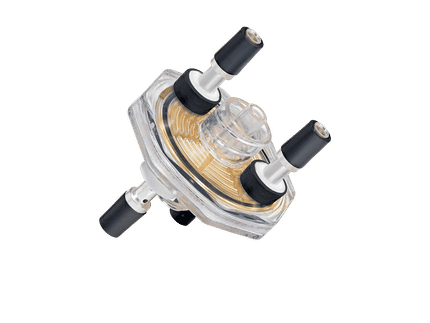To use all functions of this page, please activate cookies in your browser.
my.bionity.com
With an accout for my.bionity.com you can always see everything at a glance – and you can configure your own website and individual newsletter.
- My watch list
- My saved searches
- My saved topics
- My newsletter
MucositisMucositis is the painful inflammation and ulceration of the mucous membranes lining the digestive tract, usually as an adverse effect of chemotherapy and radiotherapy treatment for cancer. Oral and gastrointestinal (GI) mucositis can affect up to 100% of patients undergoing high-dose chemotherapy and hematopoietic stem cell transplantation, 80% of patients with malignancies of the head and neck receiving radiotherapy, and a wide range of patients receiving chemotherapy. Alimentary track mucositis increases mortality and morbidity and contributes to rising health care costs.[1] For most cancer treatment, about 5-15% of patients get mucositis. However, with 5-flurouracil (5-FU), up to 40% get mucocitis, and 10-15% get grade 3-4 oral mucositis. Iirinotecan is associated with severe GI mucositis in over 20% of patients. 75-85% of bone marrow transplantation recipients experience mucositis, of which oral mucositis is the most common and most debilitating, especially when melphalan is used. In grade 3 oral mucositis, the patient is unable to eat solid food, and in grade 4, the patient is unable to consume liquids as well.[2] Radiotherapy to the head and neck or to the pelvis or abdomen is associated with Grade 3 and Grade 4 oral or GI mucositis, respectively, often exceeding 50% of patients. Among patients undergoing head and neck radiotherapy, pain and decreased oral function may persist long after the conclusion of therapy. Fractionated radiation dosage increases the risk of mucositis to > 70% of patients in most trials. Oral mucositis is particularly profound and prolonged among HSCT recipients who receive total-body irradiation.[3] Product highlight
PathophysiologyThe pathophysiology of mucositis can be divided into its 5 stages; including an initiation phase, a message generation phase, a signaling and amplification phase, an ulceration phase, and a healing phase. Different cytokines are responsible for the various stages. The initiation phase is caused by the production of free radicals caused by the chemo- or radio- therapy, which damages cell DNA. This causes the production of cell transcription factors such as NFkB, which upregulates inflammatory cytokines, marking the beginning of the ulceration phase. Main inflammatory cytokines involved are IL-1 and TNF-alpha. During the healing phase, epithelial cells are attracted to the site of the ulcer and begin the re-epithelialization of the ulcers. Clinical manifestationsCancer patients undergoing chemotherapy usually become symptomatic four to five days after beginning treatment, reaching a peak at around day 10, and then slowly improving over the course of a few weeks. Mucositis associated with radiotherapy usually appears at the end of the second week of treatment and may last for six to eight weeks. As a result of cell death in reaction to chemo- or radio-therapy, the mucosal lining of the mouth becomes thin, may slough off and then become red, inflamed and ulcerated. The ulcers may become covered by a yellowish white fibrin clot called a pseudomembrane. Peripheral erythema is usually present. Ulcers may range from 0.5 cm to greater than 4 cm. Oral mucositis can be severely painful. The degree of pain is usually related to the extent of the tissue damage. Pain is often described as a burning sensation accompanied by reddening. Due to pain, the patient may experience trouble speaking, eating, or even opening the mouth. Dysgeusia, or an alteration in taste perception, is common, especially for those who are receiving concomitant radiation therapy to the neck and mouth area. "Taste blindness," or an altered sense of taste, is a temporary condition that occurs because of effects on taste buds that are mostly located in the tongue. Sometimes, only partial recovery of taste occurs. Common complaints are of food tasting too sweet or too bitter or of a continuous metallic taste. DiagnosisDiagnosis is based on the symptoms the patient is experiencing and the appearance of the tissues of the mouth following chemotherapy, bone marrow transplants or radiotherapy. Red burn-like sores or ulcers throughout the mouth is enough to diagnose mucositis. TreatmentTreatment of mucositis is mainly supportive. Oral hygiene is the mainstay of treatment; patients are encouraged to clean their mouth every four hours and at bedtime, more often if the mucositis becomes worse. Water-soluble jellies can be used to lubricate the mouth. Salt mouthwash can soothe the pain and keep food particles clear so as to avoid infection. Patients are also encouraged to drink plenty of liquids, at least three liters a day, and avoid alcohol. Citrus fruits, alcohol, and foods that are hot are all known to aggravate mucositis lesions. Medicinal mouthwashes may be used such as Chlorhexidine gluconate and viscous Lidocain for relief of pain. Palifermin, brand name "Kepivance", is a human KGF (keratinocyte growth factor) that has shown to enhance epithelial cell proliferation, differentiation, and migration. Experimental therapies have been reported, including the use of cytokines and other modifiers of inflammation (eg, IL-1, IL-11, TGF-beta3), amino acid supplementation (eg, glutamine), vitamins, colony-stimulating factors, cryotherapy, and laser therapy. Symptomatic relief of the pain of oral mucositis is provided by barrier protection agents such as "Gelclair." This viscous oral gel can be diluted and used as an oral rinse. The film forming agents within Gelclair coat the oral mucosa shielding ulcerated tissues and protecting exposed nerve endings. ComplicationsSores or ulcerations can become infected by virus, bacteria or fungus. Pain and loss of taste perception makes it more difficult to eat, which leads to weight loss. Ulcers may act as a site for local infection and a portal of entry for oral flora that, in some instances, may cause septicemia (especially in immunosuppressed patients). Approximately half of all patients who receive chemotherapy develop such severe OM that it becomes dose-limiting such that the patient's cancer treatment must be modified, compromising the prognosis. References
General sourcesMucositis Resource Center of the MASCC/ISOO Mucositis Study Group. Medical journal articles, guidelines, recommendations, and slides and videos from conference presentations. Categories: Symptoms | Gastroenterology |
|
| This article is licensed under the GNU Free Documentation License. It uses material from the Wikipedia article "Mucositis". A list of authors is available in Wikipedia. |







